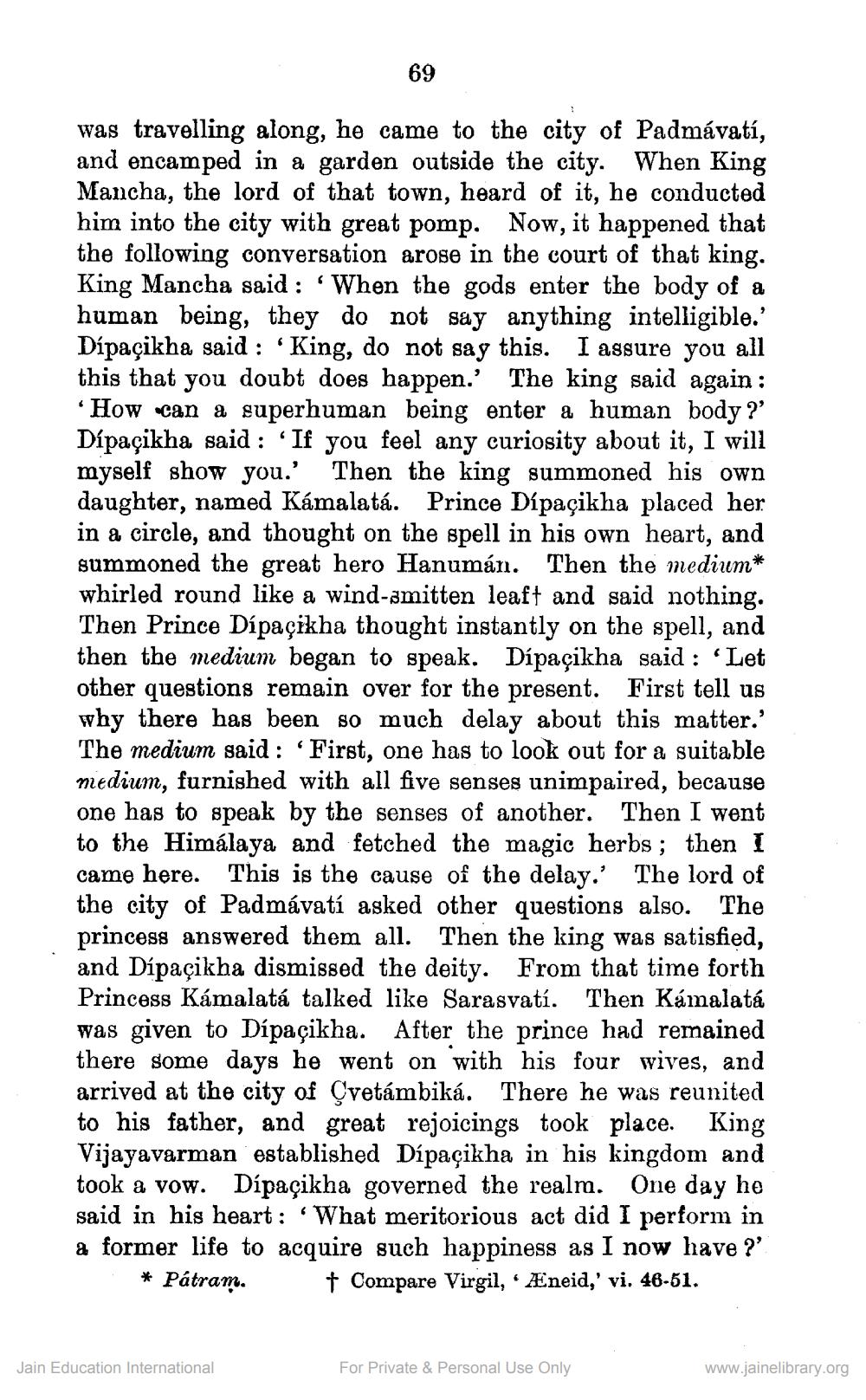________________
was travelling along, he came to the city of Padmavatí, and encamped in a garden outside the city. When King Mancha, the lord of that town, heard of it, he conducted him into the city with great pomp. Now, it happened that the following conversation arose in the court of that king. King Mancha said: "When the gods enter the body of a human being, they do not say anything intelligible.' Dípaçikha said : ‘King, do not say this. I assure you all this that you doubt does happen.' The king said again:
How can a superhuman being enter a human body ?' Dípaçikha said: If you feel any curiosity about it, I will myself show you. Then the king summoned his own daughter, named Kámalatá. Prince Dípaçikha placed her in a circle, and thought on the spell in his own heart, and summoned the great hero Hanumán. Then the medium* whirled round like a wind-amitten leaft and said nothing. Then Prince Dípaçikha thought instantly on the spell, and then the medium began to speak. Dípaçikha said : ‘Let other questions remain over for the present. First tell us why there has been so much delay about this matter.' The medium said: 'First, one has to look out for a suitable medium, furnished with all five senses unimpaired, because one has to speak by the senses of another. Then I went to the Himalaya and fetched the magic herbs; then I came here. This is the cause of the delay.' The lord of the city of Padmávatí asked other questions also. The princess answered them all. Then the king was satisfied, and Dípaçikha dismissed the deity. From that time forth Princess Kámalatá talked like Sarasvatí. Then Kámalatá was given to Dípaçikha. After the prince had remained there some days he went on with his four wives, and arrived at the city of Svetámbiká. There he was reunited to his father, and great rejoicings took place. King Vijayavarman established Dípaçikha in his kingdom and took a vow. Dípaçikha governed the realm. One day he said in his heart: 'What meritorious act did I perform in a former life to acquire such happiness as I now have ?'
* Pátram. † Compare Virgil,' Æneid,' vi. 46-51.
Jain Education International
For Private & Personal Use Only
www.jainelibrary.org




